Running through the end of July, the hit play about three generations of a dysfunctional Jewish clan is a sometimes true, always poignant, airing of dirty laundry
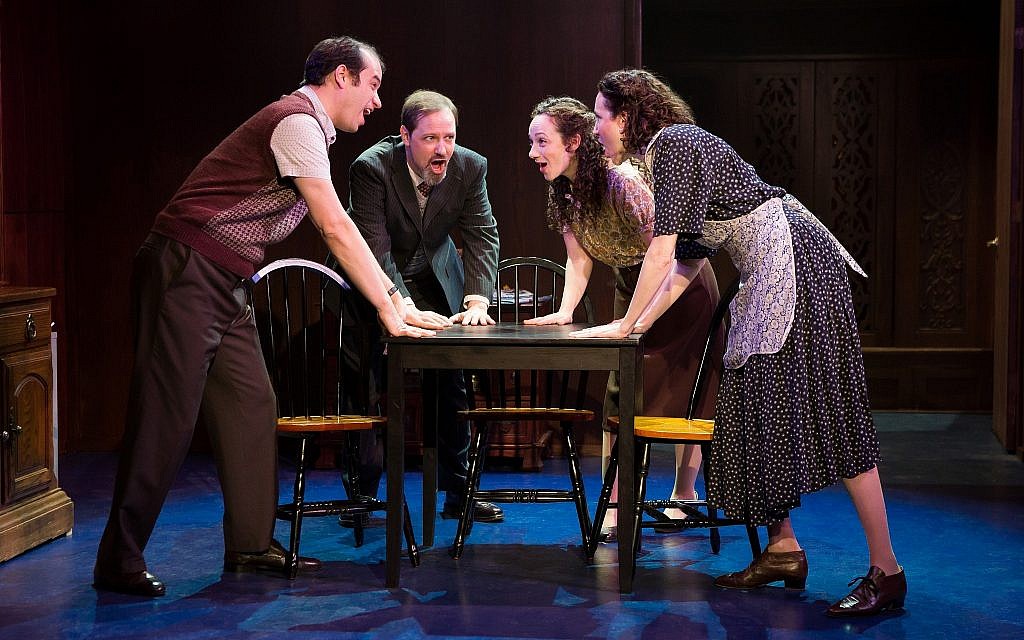
NEW YORK — On a rainy autumn night in 1998, writer and producer Charlie Shulman was driving on the Long Island Expressway towards New York City in his father’s old Volvo that he would soon inherit.
“My father was at the start of a long illness and I was literally alone with my emotional baggage,” Shulman recalled.
Shulman was listening to the radio when the DJ asked listeners to call in to the station and share their deepest and darkest family secrets.
“One person had been told his father was in the army but he was really in prison, and there were a million things like that,” said Shulman. “All these people were just unburdening themselves of a lifelong lie.”
As callers continued airing their dirty laundry for everyone to hear, he realized that his own family had its fair share of classified stories. Perhaps it was time to let them run free, he thought, and perhaps he could be the one to do it — on stage.
Years later it all finally came to life with “Goldstein, the Musical” which opened earlier this month off Broadway at The Actor’s Temple and runs through the end of July. The Temple is an active congregation on 47th street which originally aimed to provide a safe place of worship for show business Jews, and now doubles as a theater. “Goldstein, the Musical” explores the challenges and triumphs of an immigrant Jewish American family, with a cast of seven acclaimed Broadway actors.
As the program says, it is “a musical about family” and all it entails: the complexity, the sometimes rocky relationships, the untold secrets, the feelings of resentment — but also love, and the importance of forgiveness.
“I think we grow up from our family of origin and look back and think what happened? How did all of that happen? Why did people do all the things that they did?” Shulman said.
In “Goldstein,” he tells the story that shaped his upbringing by starting with two secrets: how before marrying his grandfather, his grandmother fell in love with a man on the boat that brought her to the United States from Europe, and how his grandfather was a deserter who had lied to his wife about his last name.
“I took it from there,” Shulman said. “The idea is that the real family secrets would propel the narrative.”
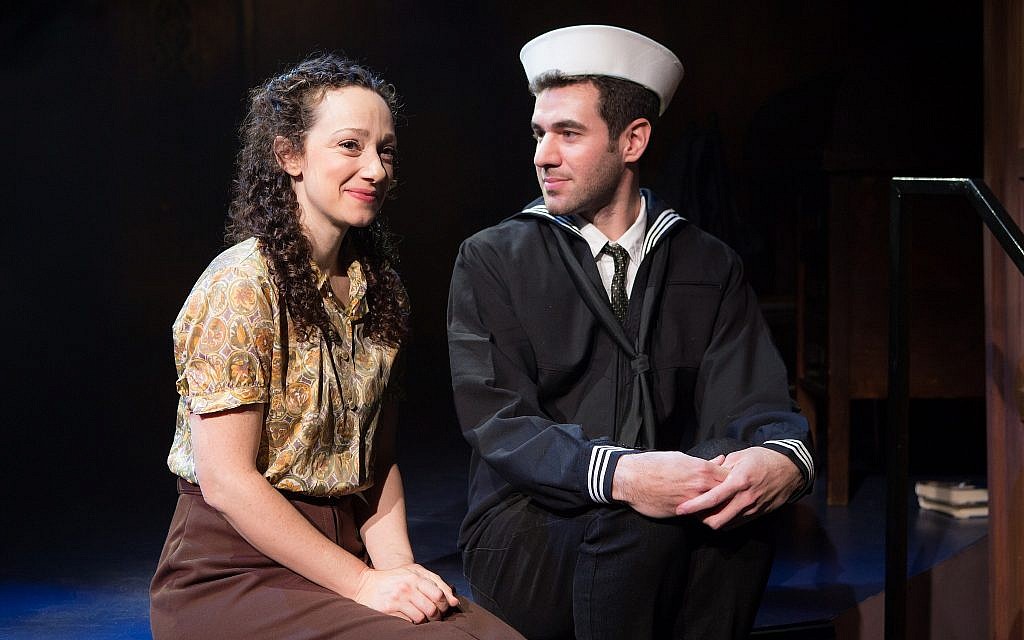
The audience watches the story of three generations unfold before their eyes in a lighthearted and funny, yet complex and serious play that tries to make some sense of family dynamics against the backdrop of real historical events.
At times, Goldstein feels like a stand up comedy, generating loud laughs from the house. At others, it’s a drama with real struggles, pain and missed opportunities. The juxtaposition of the two is, in fact, much like family life itself.
Framing the story is a powerful and touching song list put together by composer Michael Roberts.
From ‘The Fartiste’ to family drama
Shulman and Roberts met over a decade ago when they were introduced by their common agent to work on a musical entitled “The Fartiste,” the true story of Joseph Pujol, a professional flatulist who used to be the highest paid performer at the Moulin Rouge in Paris. Their production went on to win the New York International Fringe Festival in 2006. From there, a collaboration was born.
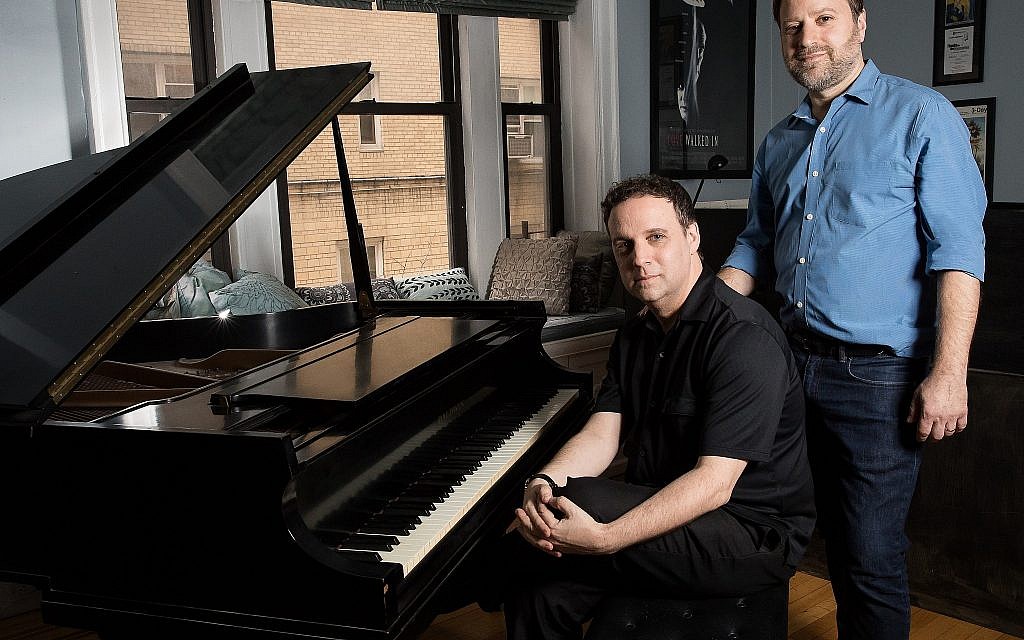
Roberts told The Times of Israel that when he first read the play Shulman had written about his family, it was clear to him the show “could sing.”
Although there are some major differences between the two men’s upbringing, Roberts said he drew from personal experience when writing some of the music and lyrics.
This was the case for the song “visiting your mother,” one of the funniest moments on stage which captures what Roberts calls “a very real thing for tri-state area Jews of a certain age.”
“You would go on the weekends [to visit your grandparents]. They’d throw the kids in the back seat and you would drive to Brooklyn or wherever to see your relatives in their stuffy apartments.” Roberts said. “I remember that an awful lot and the idea of going was miserable — I wanted to play baseball.”
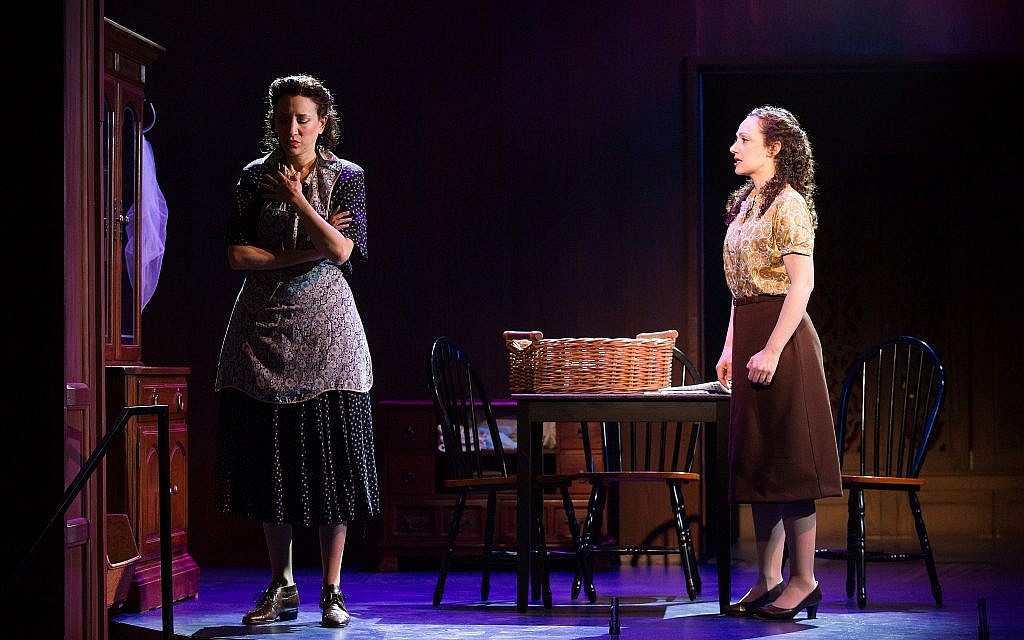
But one song that clearly sums up this “musical about family” is undoubtedly “For the best.” Performed by the entire cast towards the end of the show, it reminds those on stage and those sitting in front of it that while we tend to criticize our parents and blame them for past decisions, they only were doing what they thought was best at the time.
“We are so quick to expect people to be better than we are ourselves,” Roberts said. “What do you expect from your parents? They also had imperfect parents!”
“To expect perfection from people, which we are still naive enough to do, is hurtful to everybody,” he added. “Yes, for me that is the show — that we stop expecting heroic things from our parents. It’s how people should be with all people.”
Through the story of the Goldstein family, Shulman also raises the topic of inequality that is sometimes “baked into the fabric of families” like differences in how parents treat boys and girls, and even homophobia, a theme that has particularly impacted his relationship with his parents.
Putting all of this on stage, he said, was a necessary cathartic process for him.
“I feel like I’m able to move on from my family in a positive way,” Shulman told The Times of Israel. “I think a lot of members of my family, myself included, have held on to unresolved issues in the past and I think that this has helped me move on.”
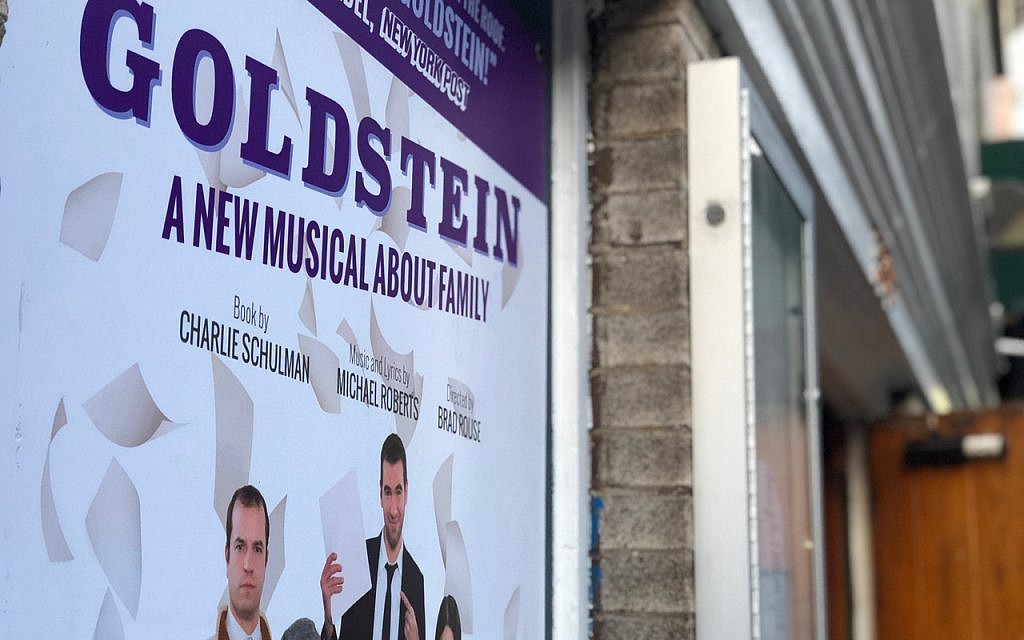
“It’s a tremendous feeling of relief really,” he added. But to truly come full circle, Shulman wanted the reactions of his relatives to the show. His 88-year-old mother already loves the musical, although she has pointed out that “that’s not exactly how it happened,” which, Shulman said, is “kind of the whole point of the show.”
“My sisters, whom I have difficult relationships with, I’m hoping that this will help somehow,” he added. “One of them coming to the show next week.”
Although “Goldstein, the Musical” is very personal to Shulman, it is also quite universal.
“It’s very relatable,” said one audience member as she stepped out of the 47th street theater on a Thursday night.
“I want the play to be for everybody and I think that it is,” Shulman said. “I think that it’s for anybody who has a family.”
As reported by The Times of Israel
